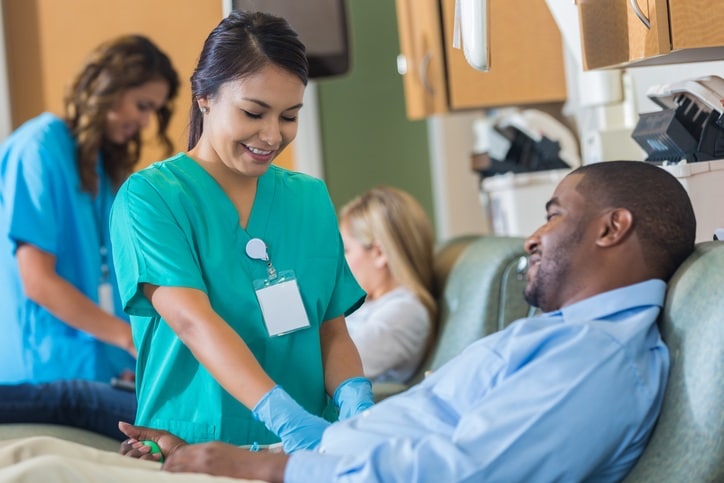
Be a "first" first responder and donate blood
by Jessica Brewer, LMH Health
Life-saving blood transfusions are needed in hospitals and emergency treatment facilities across America each day. Patients need blood for major reasons including cancer, heart and blood vessel disease, disease of the GI tract and emergencies such as car accidents and burns.
January is national blood donor month. The nation’s blood supply has never been lower and the community is in desperate need of blood donors. The Community Blood Center (CBC) reports the reasons that have led to the current blood shortage are a decline in overall donor base, decline in first-time donors, decline in high school and college donors and increased demand for blood products.
LMH Health will be hosting a blood drive on Friday, January 10 from 9:30 a.m.-3:30 p.m. in the LMH Health Auditorium. Donors will select their choice of a Kansas City Chiefs hat or t-shirt through the online donor portal after the blood drive. To schedule an appointment, visit www.savealifenow.org/group and enter the code TPJS.
Baby boomers have primarily been the largest donors of blood. However, most are now approaching ages where they are often the ones who need blood transfusions and are no longer able to donate. For millennials and younger donors, the willingness to give blood and the percent of millennials who regularly donate blood is very low.
You must be 16-years-old, weigh at least 110 pounds and be in generally good health to donate. Since blood has a limited shelf life, supplies are continually needed. A single donation can help save multiple lives.
Blood donation takes about an hour and each donor is screened prior to donating to make sure their blood is healthy and they qualify to give blood.
Faith Nilhas, blood bank supervisor, says that blood donors are called the first, first responders.
“The blood that donors give prior to a crisis or emergency may be used immediately,” Nilhas said. “It has been said that Lawrence bleeds like no other. People in Lawrence are very willing to donate blood.”
Each LMH Health blood drive collects roughly 60-75 units of blood. Though it may sound like a lot for a single hospital, the CBC requires 580 donors every weekday to meet area hospitals’ needs. About one in seven hospital admissions require a blood transfusion.
“There is no substitute for blood,” Nilhas said. “We haven’t reached the point to where an alternative for blood has been discovered, so if there is a need for blood and we do not have any, we have to tell someone we don’t have blood for them.”
Typically a community likes to have a three to five day supply of blood on hand. If the supply dips below this, there is an even bigger need for blood. Having a large supply of blood on hand helps protect community members and their loved ones in case of emergencies.
“If you need blood, you need it,” Nilhas said. “Lawrence is full of altruistic people. The people in this community donate blood like no other city. We are lucky to have many people who come and donate.”
Jessica Brewer is the social media and digital communications specialist at LMH Health.